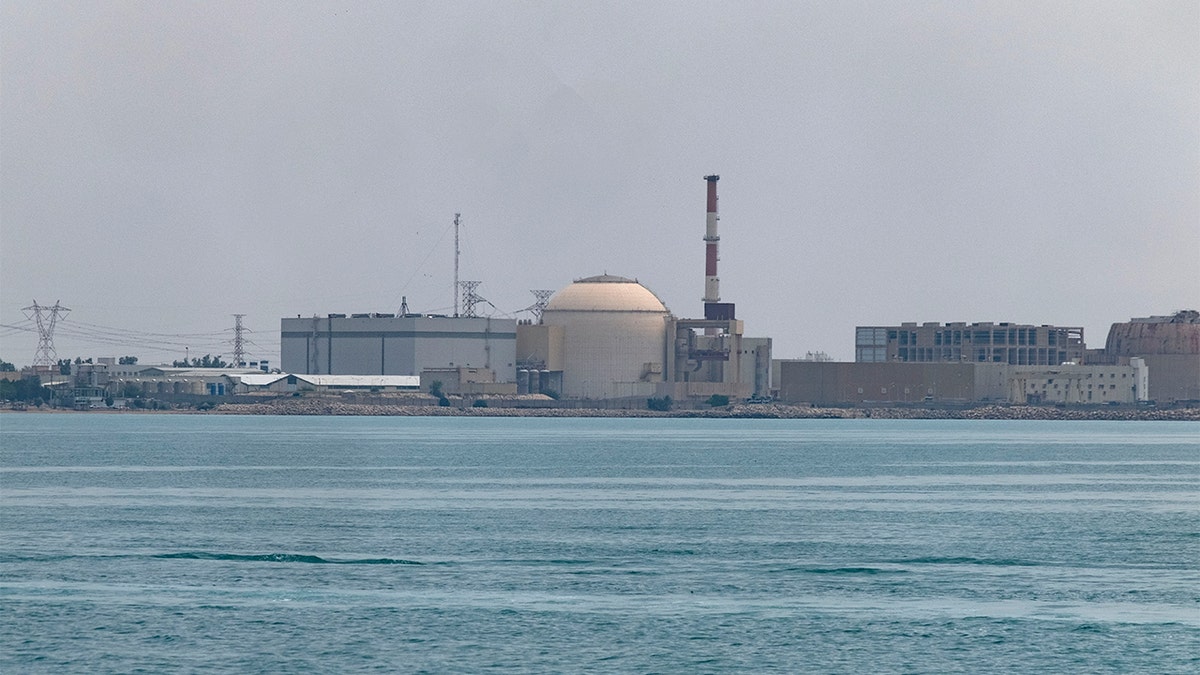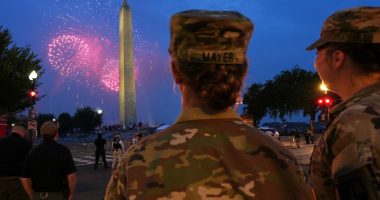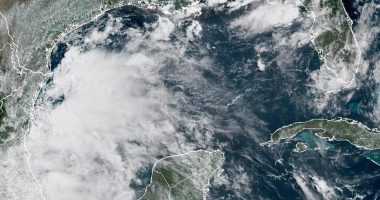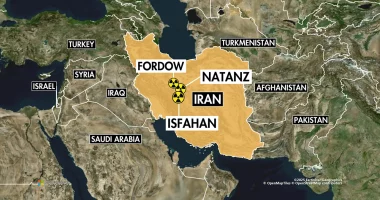Share this @internewscast.com
European and Iranian negotiators wrapped up their discussions in Geneva, Switzerland, Friday without achieving a decisive breakthrough, but diplomats informed The Associated Press that they remained optimistic about further engagement with the Iranians.
These negotiations with Iran occurred a day after White House press secretary Karoline Leavitt conveyed a message from President Trump, stating, “Considering the significant possibility of upcoming negotiations with Iran, I will decide on my course of action within the next two weeks.”
One former Pentagon official says there is an important issue that is not being discussed.

The Bushehr nuclear plant in Iran April 29, 2024 (Morteza Nikoubazl/NurPhoto via Getty Images)
“If Iran discontinues its nuclear program as demanded by Trump, there’s another issue we need to address: how to move all the nuclear material out of Iran,” Michael Rubin, a senior fellow at the American Enterprise Institute, told Fox News Digital.
Rubin, who has lived in post-revolution Iran, Yemen, and both pre- and postwar Iraq, mentioned that there are a few options available.
“The United States could do it, but we don’t want boots on the ground.”
Rubin cited a quote from Margaret Thatcher to George H.W. Bush in 1990 — “Don’t go wobbly on me now, George” — when Saddam Hussein invaded Kuwait.
“I suspect Marco Rubio is filling Margaret Thatcher’s britches, that he is the one going around now to our European allies, saying, ‘Don’t go wobbly on me now.,’” said Rubin.

Iran’s Supreme Leader Ali Khamenei attends Nowruz events in Tehran, Iran March 21, 2025. ( Iranian Leader Press Office/Handout/Anadolu via Getty Images)
“[He] is saying this to everyone else within the European Union and the United Kingdom because if the Europeans have their choice, they’re going to choose quiet over common sense.”
On Thursday, Rubio spoke with counterparts to discuss the ongoing Israel-Iran conflict.
According to State Department spokesperson Tammy Bruce, he spoke with Australian Minister for Foreign Affairs Penny Wong and French Foreign Minister Jean-Noël Barrot in separate conversations about the ongoing conflict.
They all agreed to “continue to work together closely to commit to a path of peace and ensure that Iran never develops a nuclear weapon,” Bruce said.

















